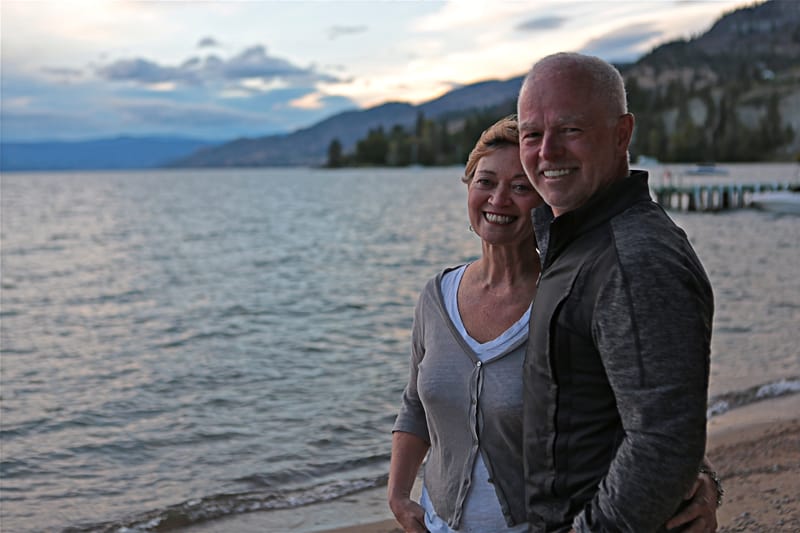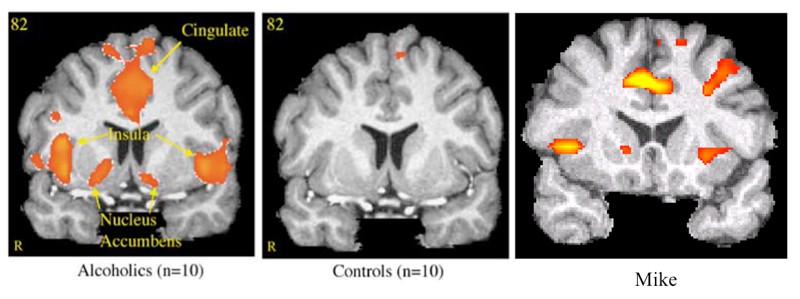Do you know someone with an addiction problem?
Last October, I attended a lecture at the University of Toronto given by Marc Lewis, Ph.D., a neuroscientist and professor of developmental psychology. A former addict himself and author of The Biology of Desire: Why Addiction is not a Disease, Lewis said that addiction is not a disease, but rather an exaggerated outcome of normal learning. He also said that addiction is not caused by drugs or alcohol, it’s caused by attraction, where each cycle of attraction builds synapses in the brain that continue to narrow one’s focus to seek out immediate rewards rather than pursue longer-term opportunities. Proximity, availability and ego fatigue collude with the rewired brain to impair decision-making ability, blunting the sense of time that is normally part of our sense of self and who we are striving to become.
Wasted
This Thursday, January 21, 2016, CBC’s The Nature of Things will air the documentary Wasted at 8:00 p.m. The show chronicles the journey of Mike Pond, a successful psychotherapist from Penticton, B.C. and an alcoholic-in-recovery, as he discovers new evidence-based addiction research and treatment options.
Filmmaker Maureen Palmer and Pond originally set out to help others battling substance abuse by filming his progress after his five years of sobriety. But shortly after filming began, Pond relapsed and drank again. Pond had been at rock bottom before: he lost his practice, home and family, and had ended up homeless in Vancouver. This new challenge brings a personal and real-time urgency to their quest to find a treatment that could work.

Mike Pond and Maureen Palmer. Image courtesy CBC’s The Nature of Things.
Alcoholics Anonymous doesn’t work for most people
The only treatment offered to Pond at the time was Alcoholics Anonymous (AA). No surprise there, since most people, including frontline healthcare providers, still believe AA is the only effective treatment for addiction.
But the program didn’t work for Pond. In fact, it doesn’t work for a majority of people with addiction problems, and those who can’t work the twelve steps often feel like failures, especially when “success” is defined as total abstinence. Dr. Bill Miller, Professor Emeritus at the University of New Mexico and one the world’s foremost addiction experts, argues for a radical shift in thinking. He looked at large data sets on outcomes of alcoholism treatment programs in the U.S. and found that one in four people had abstained for a year after treatment. For the other 75% who did drink in that year, their alcohol consumption was down by 87%. He says, “Now for any other chronic condition, a 25% complete remission and an 87% reduction in symptoms for everybody else would be astonishingly successful. We really disadvantage ourselves by saying you’re a failure if you have even a single recurrence of what was the reason why you were admitted in the first place.”
Brain research clues
After years of recriminations and feelings of shame and failure with his recent relapse, Pond says, “I don’t want to go get a drink. I want to go and get the effect of that drink.” He is relieved to learn that his brain is wired differently and that his addiction is not a lack of willpower. His score on a computer game to test the ability for self-control showed he has a high level of impulsivity. When he viewed pictures of alcoholic and non-alcoholic drinks while in an fMRI machine, he reported that he didn’t have cravings when looking at the pictures of booze, yet his brain images told a much different story. His brain showed increased activity in the same areas as a small group of people with alcohol dependence issues.

Image courtesy of CBC’s The Nature of Things.
New drug options for addiction
Pond travelled to Bellingham, Washington for a new drug treatment called naltrexone (Vivitrol), an injectable medicine that can block or blunt cravings for up to 30 days. The drug is not yet available in Canada as an injectable and the pill form is apparently rarely prescribed. According to the manufacturer Alkermes’ website, studies showed that patients who received the drug plus counselling experienced significantly fewer days of heavy drinking. The drug is intended for people who have stopped drinking large amounts of alcohol to help them avoid drinking again and is to be used together with counselling and social support. And some people, like Pond, have a genetic predisposition to respond better to the drug.
Another medication mentioned in the film is gabapentin; a drug primarily used to treat seizures and neuropathic pain but also for anxiety disorders, insomnia, hot flashes and bipolar disorder.
Watch the film to find out what happens
I’ve watched it and I think Wasted is an important documentary to reduce the stigma associated with addiction and encourage more people to get help. How we define success matters greatly. Our healthcare system needs to ensure that people dealing with addiction can access the range of evidence-based treatments that are now available, including medications and cognitive behavioural therapy.
No one should get kicked out of treatment for relapsing. I recall Mark Lewis saying in the lecture I attended last October that one of the most powerful ways to help addicts is to empower them in their recovery, utilize their desire for other goals and help them envision a future that looks beyond the immediate to see their life as a narrative that can move from the past to the present to the future. That Pond can reconnect with his motivation and his reasons for moving forward bodes very well for his continued recovery. Kudos to Pond and Palmer for filming his journey so that it may help others!
Helpful resources
In Canada, the Addiction Medicine Fellowship Program is providing training to the province’s doctors in British Columbia. The program is a partnership between the BC Centre on Substance Use, St. Paul’s Foundation, St. Paul’s Hospital, the BC Centre for Excellence in HIV/AIDS, and the Division of AIDS at the University of British Columbia (UBC).
Pond and Palmer have published a book Wasted: An Alcoholic Therapist’s Fight for Recovery in a Flawed Treatment System chronicling his journey in greater detail.
Bountiful Films and partner Magnify Digital are launching Addiction The Next Step, an online portal for families and loved ones of those battling substance abuse. It has an interactive guide with proven therapy and information about how to communicate in a manner that motivates a substance abuser to change while reducing family stress and fear.

